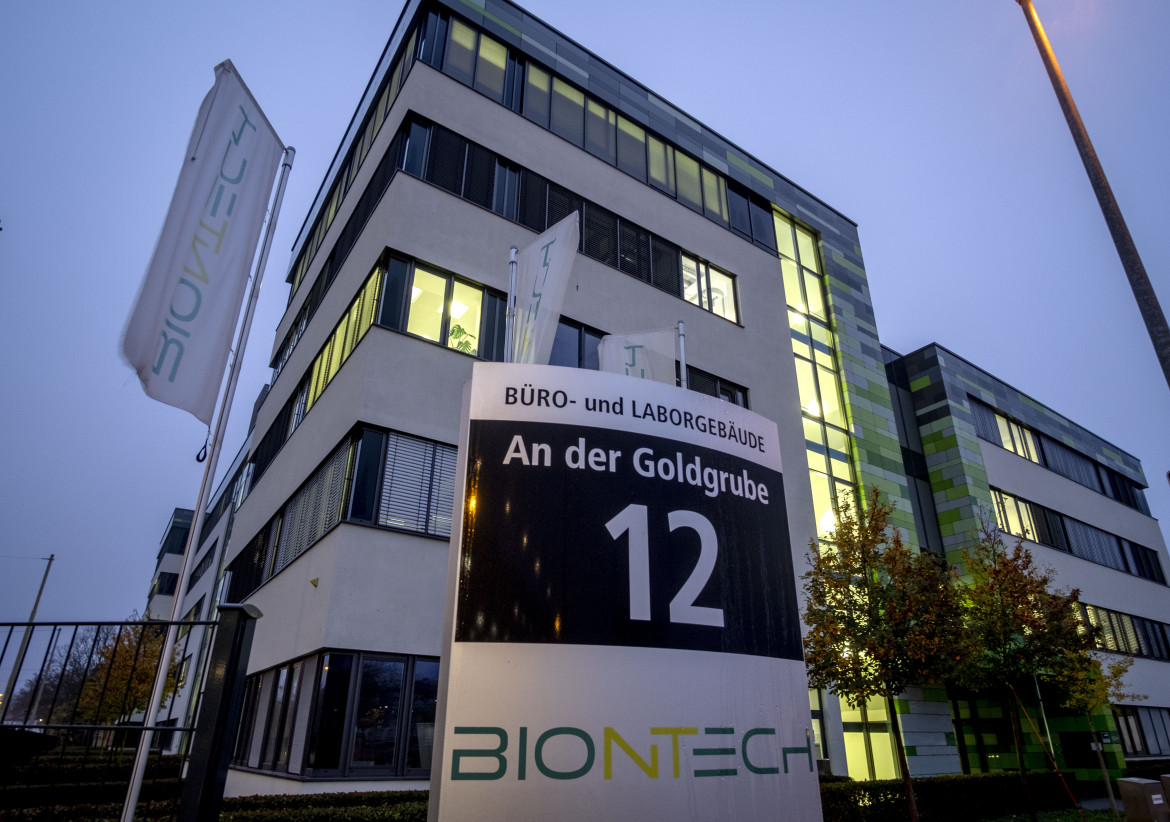Analysis
Vaccine logistics push EU toward a health union
At the beginning of the pandemic, it was every country for itself. Today there is much more cooperation — but very little transparency.

The project toward a Europe-wide health system got a shot in the arm by the information on the progress of research on anti-COVID vaccines. On Wednesday, the Commission took a first step towards the construction of a health union, with the proposal of a program to achieve greater coordination in this area between member states and strengthen surveillance tools through agencies (EMA for medicines, ECDC for disease control and prevention and HERA, the Health Emergency Response Authority, which should be established by the end of 2021). The proposals have been well received by the political groups in the European Parliament, which voted to approve them Wednesday.
Furthermore, Brussels has authorized the purchase of 200 million doses (with an option for another 100 million) of the vaccine made by Pfizer-Biontech (USA-Germany). Next week, the data should be published confirming the promise of 90% effectiveness of this vaccine, in order to allow the European Medicines Agency (EMA) to approve it and thus catch up with Britain and the U.S., transforming the options into final orders.
The 300 million doses will be produced in Europe, in facilities in Belgium and Germany. Greater coordination between the 27 nations should avoid the unrest and the hoarding rush that marked the first months of COVID, for masks, gloves, gowns and also vaccines, since at the end of last spring the countries made moves without coordination: Germany invested into Curevac, France agreed with Sanofi, four countries (including Italy) concluded options with AstraZeneca before the EU took over and signed pre-contracts with AstraZeneca (Great Britain-Sweden), Johnson & Johnson (US) and Sanofi-Gsk (France-Great Britain), as well as options with Curevac (Germany) and Moderna (US).
There is the problem of logistics. Pfizer’s vaccine needs to be stored in the cold, preferably at minus 80 degrees Celsius, and there is a lack of transport and storage facilities. Countries need to anticipate needs, prepare and cooperate, and cooperation on COVID was at a minimum in the beginning. There is still unbridled competition between Big Pharma’s laboratories, because even if there is business for everyone in the medium-long term (7 billion humans to vaccinate), whoever is first will have advantages. At Institut Pasteur, for example, they are running late, but they hope to be “the tortoise in the story of the race with the hare.”
On Wednesday, before the vote, the European Parliament discussed fair access to vaccines with the Health Commissioner, Stella Kyriakides, who had said earlier it was “too soon to have a calendar” of vaccinations.
Since Wednesday, vaccines and fair access have been a topic for world leaders to discuss at the Paris Peace Forum, the Davos of international cooperation, now in its third edition, with the presence (in person or via video) of about 50 heads of state and government and leaders of major international organizations or foundations, including Angela Merkel, Antonio Guterres (UN), Kristalina Georgieva (IMF), Ursula von der Leyen (European Commission), Tedros Adhamon Ghebreyesus (WHO) and Melinda Gates.
A particular focus of the discussions was the ACT-Accelerator (Acces to Covid Tools) mechanism, which should ensure a fair distribution of vaccines in the world. The president of the Paris Peace Forum, Pascal Lamy (former president of the WTO and former European Commissioner), explained that the problem with vaccines will be their distribution in the countries of the global South: there is the question of the “last mile,” i.e. the lack of facilities at the local level, but more importantly, there is a lack of the necessary funding for equitable distribution. Lamy decried the fact that €15 billion of the €20 billion needed are still short, recalling that “the arms market is worth €2 trillion.”
On Wednesday, Doctors Without Borders denounced the lack of transparency surrounding the vaccines: in Europe, €12 billion of public funds have been invested into six vaccines, but the details of “licenses, agreements, clinical trial costs” remain secret, while this would be “critical information” to negotiate affordable prices and assess their safety and effectiveness.
Europe will also have to address the issue of vaccine skepticism. According to surveys, in some countries, with France in the lead, around half of the population is skeptical and has no intention of getting vaccinated. Yannick Jadot, leader of the Greens (which includes a strong no vax component) has said that the vaccine should be “mandatory.” But a Belgian virologist, Marc Van Ranst, is arguing that this would be the worst course of action, because it is a decision that would “send negative signals,” as the polls say that 50% would agree to get vaccinated, 17% are definitely against it and 33% are undecided. The goal, he argues, is to convince this undecided third without forcing the issue, in order to not increase distrust.
Originally published at https://ilmanifesto.it/lue-compra-il-nuovo-vaccino-in-cerca-di-ununione-sanitaria/ on 2020-11-12
